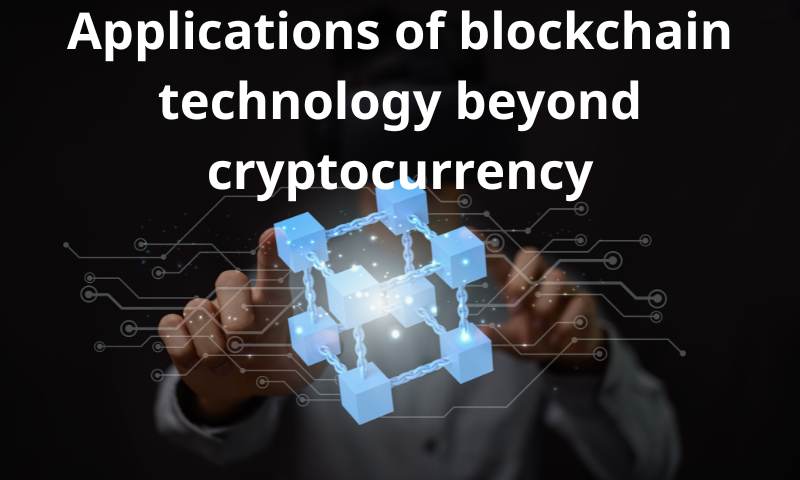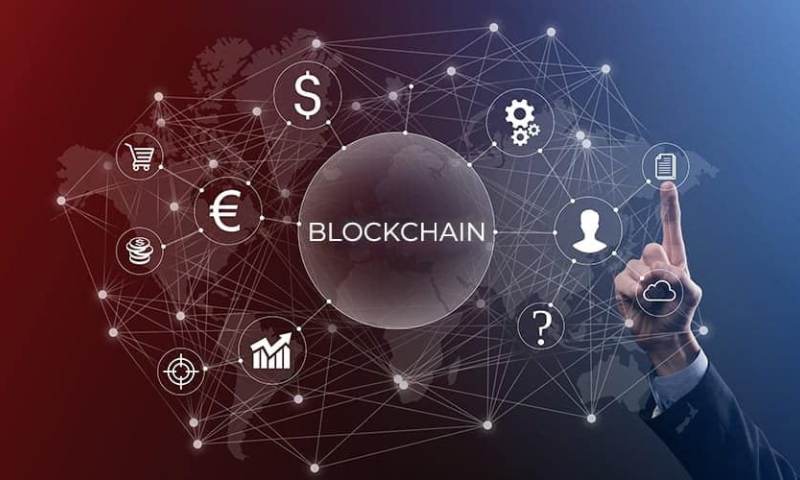Blockchain Breakthroughs: Unveiling Non-Crypto Innovations That Are Changing the Game
Think blockchain is all about digital cash? Think again. The applications of blockchain technology beyond cryptocurrency are reshaping how we approach everyday tasks. I’m here to guide you through the most exciting breakthroughs – those that don’t involve a single coin. We’ll dig into how blockchain is overhauling supply chains, making them fully transparent and verifying that your products are the real deal. We’ll explore smart contracts that seal business deals with an ironclad trust. Then, we’ll dive into the world of DeFi, where money moves without the middleman, and peer-to-peer finance is upending the old bank game. Lastly, we’ll see how blockchain is safeguarding our health records and ensuring that the medicine we take is legit. Sit tight; we’re about to go beyond the buzz of Bitcoin to unveil a world of innovation.
Revolutionizing Supply Chains with Blockchain
Enhancing Transparency and Traceability
Think about when you buy a new toy. You might wonder where it came from. With blockchain in supply chain management, you don’t have to guess. Every step—from factory to store—gets recorded on a super-safe digital ledger. It’s like a game of hopscotch, but each hop is a step in making your toy. Smart, right?
Imagine a can of soup. You can see all its travels before it gets to you. Track and trace on blockchain make it happen. Farmers, truckers, and stores all use blockchain. It connects them without any mix-ups. If you ask, “Where’s my soup from?” Blockchain tells you, fast and straight.
Securing Product Authenticity through Provenance
Now, think about a baseball card. You want to know it’s the real deal. That’s what product provenance verification is all about. How? A baseball card gets a special digital mark on the blockchain. This mark is a promise that your card is genuine, not a fake.
When someone says, “Is this card for real?” Blockchain answers “Yes, and here’s how I know,” in no time. It checks the card’s journey, from when it was made to when it gets to you. Each stop is a clue that adds up to the truth.
By using blockchain, companies keep things honest. Your stuff is the real deal, and the path it took to reach you is crystal clear. Isn’t that good to know?
Smart Contracts: The Building Blocks of Trust
Automating Business Agreements with Blockchain
Remember when deals were sealed with a handshake? Now, imagine that trust, coded into software. That’s a smart contract. Virtual handshakes, you might say. Smart contracts run on blockchain. They work on their own when set rules are met. They are like vending machines. You pick a snack, pay your money, and your chips fall out. Same with smart contracts. You do x, and y happens right after, no waiting, no mix-ups.
Businesses are all in on this. It cuts out the middleman. It saves time and moolah. No more waiting for a sign-off. When a job’s done, payment goes out. No hassle. Clean and neat.
These contracts are huge for supply chains. They show who made what, where, and when. You buy a shirt? With a click, you can see where the cotton was picked. You can tell if a deal is fair, or if workers got a raw deal.
And it’s not just talk. It gets used for real things right now. In the food biz, for a start. They track your meal from farm to plate. No lies, no secrets, just the truth for all to see.
Smart Contracts in Action: Case Studies
A shipping firm gets a box of goods. They slap on a smart tag. All through its trip, from sea to land, everyone can peak at where it’s at. Once it hits the shelf, bang – the seller gets paid.
Or take real estate. Buying a house can freak people out. So much paper! But if it’s a smart contract, a lot of the stress melts away. The deal goes through as soon as the terms are met. The title and keys change hands with no risk of foul play.
Healthcare’s catching on, too. They use these contracts to handle records. Who can see them? When? You got it. These smart agreements call the shots. No snooping unless it’s in the clear.
Even artists are winning. They sell tunes and art with these contracts. Fans buy straight from the source. Artists get their fair share at last. No more waiting for a check that might never show.
It’s exciting stuff. Real stories of people and businesses saving time and money. Staying safe and feeling sure about the deals they make. This is just the start. We’ve opened the door to a place where trust is just part of the deal. It’s all thanks to smart contracts – our digital promise keepers.
Decentralized Finance (DeFi): A New Paradigm
How DeFi Platforms are Reshaping Lending and Borrowing
DeFi changes how we lend and borrow money. Banks no longer call the shots. You deal directly with others. It’s all on the blockchain. You might ask, “What are DeFi lending protocols?” DeFi lending protocols are rules that manage loans between people on blockchain. They’re free from banks and borders. DeFi platforms took off fast, with billions now moving in these systems.
These platforms are not just niche experiments; they’re the real deal. They offer loans without paperwork or a long wait. If you have crypto, you can lend it or borrow against it, often getting your hands on funds in minutes. This is huge for those who can’t get loans easily, like small businesses or folks in remote areas.
Interest rates float with demand using algorithms. This might seem risky, but it brings new ways to earn from your assets. With DeFi, your money works round the clock. It earns interest and fuels others’ dreams, with no hidden costs eating away at it. It’s a game of trust, played out with smart contracts that automatically handle the terms, payout, and payback.
The Impact of Peer-to-Peer Finance on Traditional Banking
Traditional banks feel the heat from peer-to-peer finance. Peer-to-peer means person to person, no middle man. So, you might wonder, “How does peer-to-peer finance impact banks?” It shifts power to regular folks. We can lend to each other without the banks’ help.
Before, getting a loan was tough. You’d need to dress up, fill in forms, and wait. Sometimes it was a flat-out no. DeFi takes such hurdles away. It’s a fairer playing field. People with little to no credit history can join in and get funds based on their crypto assets. Hence, banks are playing catch-up, figuring out how to fit into this new world.
Governments are peering into the DeFi space, too. They want to make sure it’s safe and fair. They’re crafting rules to protect users. This is important because DeFi’s still young. It needs the right touch — strict enough to be safe, but free enough to grow.
What’s clear is DeFi’s not a fad. It’s reshaping finance with every loan it enables. It’s a clear sign of a future where we handle our money on our terms. The question isn’t if it will change the banking system, but how deeply it will.
While DeFi’s full impact on banking is yet to unfold, peer-to-peer financial services are here in a big way. They’re rewriting the rules and showing that when it comes to your money, you should have the power. And as for the banks… well, they’ll either adapt or watch from the sidelines as we change the game.
Blockchain-Powered Solutions in Healthcare
Reinforcing Patient Data Security and Privacy
Question: How is blockchain reinforcing patient data security and privacy?
Answer: Blockchain makes patient data secure and hard to hack.
In healthcare, keeping patient information safe is a big deal. We all want our medical details private, right? Imagine a world where your health records are as safe as the money in your bank. That’s what blockchain can do. It’s like a digital lockbox, allowing only the right people to see your health info. Doctors and nurses can quickly get your medical history, allergies, and more without the risk of it being stolen or changed.
Drug Traceability and Authenticity Verification
Question: What role does blockchain play in drug traceability and authenticity?
Answer: Blockchain helps ensure drugs are real and tracked from maker to user.
When you get medicine, you trust it’s the real deal. But sometimes, bad drugs slip through. Not with blockchain. Blockchain is like a high-tech tracker for each pill, vial, or bottle from when they’re made until they’re in your hand. It checks that your medicine is what it says on the label and hasn’t been tampered with. You get peace of mind knowing exactly where your meds have come from, and if they’re safe. Pretty cool, right?
In this post, we’ve dug into how blockchain is changing the game in supply chains, deals, finance, and healthcare. We talked about making supply chains clear for everyone to see, and making sure products are real from their start. Smart contracts make business deals less of a headache. They work on their own and we saw how they help in real-world cases.
On the finance front, DeFi shakes up the old ways of lending and saving. It’s peer-to-peer which means no middlemen. That’s big. And, in healthcare, blockchain helps keep patient info safe. It also makes sure drugs are what they say they are.
To wrap it up, blockchain isn’t just tech talk. It’s a real deal. It makes things we count on every day better and builds trust. Trust is gold. That’s my final say. Blockchain can lead us to a future where we feel more secure and in the know. Let’s keep our eyes open for what’s next.
Q&A :
Sure, here are the FAQs:
What are some areas where blockchain technology is applied besides cryptocurrencies?
Blockchain technology has a broad range of applications beyond just powering cryptocurrencies. It is being used in sectors such as supply chain management for tracking the production, shipment, and delivery of products in a transparent way. In healthcare, patient records can be securely stored and shared, improving data accuracy and access. Additionally, blockchain is being used to create secure and transparent voting systems, to prove the provenance of goods in the art and luxury goods market, and in real estate to streamline the process of buying and selling property. Smart contracts, which are self-executing contracts with the terms of the agreement directly written into code, are another major application of blockchain technology.
How is blockchain transforming the supply chain industry?
Blockchain technology is revolutionizing the supply chain by offering a secure and transparent way to track the lifecycle of products. From raw materials to production to distribution, blockchain provides all parties involved with a single source of truth that is immutable and easy to verify. This results in increased efficiency, reduced costs, and improved trust among supply chain stakeholders. Additionally, blockchain’s ability to deter fraud and counterfeiting is particularly beneficial in the supply chain industry, as it ensures that goods can be traced back to their origin.
Can blockchain be used to improve the security of personal data?
Yes, blockchain can significantly enhance the security of personal data. By storing data across a decentralized network, blockchain reduces the risk of centralized data breaches. Encrypted transactions and the use of private keys ensure data privacy, while the immutability of the blockchain ensures that once something has been recorded, it cannot be altered without consensus, which helps prevent fraud and unauthorized manipulation. Blockchain technology can be leveraged to create secure identity management systems where individuals have control over their personal information and can selectively share it with trusted entities.
What role does blockchain play in ensuring the authenticity of products?
Blockchain plays a significant role in ensuring product authenticity by creating an unchangeable record of a product’s journey from its origin to the end-user. In industries such as pharmaceuticals, luxury goods, and electronics, blockchain can help prevent counterfeiting by providing a transparent and tamper-proof supply chain history. Consumers can verify the product’s authenticity by accessing the blockchain, potentially with a simple scan of a QR code, giving them confidence in the products they purchase.
How can blockchain technology influence the real estate market?
Blockchain technology is set to disrupt the real estate market by tokenizing property, thereby enabling fractional ownership and simplifying the process of buying, selling, and trading real estate. By recording property titles and transactions on a blockchain, the need for traditional record-keeping could be diminished, and it would reduce the potential for fraud. Smart contracts could automate many of the contractual processes in real estate transactions, reducing the need for intermediaries, and in turn, could lower transaction costs and increase market efficiency.


